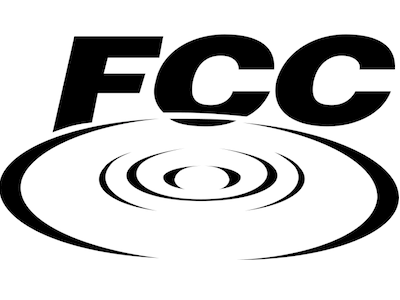FCC Net Neutrality Proposal Might Allow 'Fast Lanes'
Net neutrality at risk? The FCC today voted for a proposal that, if it became law, might not block ISPs from creating Internet 'fast lanes.'

The new proposal just passed today (May 15) would prohibit Internet service providers from blocking traffic outright or slowing it to a crawl, but it's vague about the creation of "fast lanes" privileging certain types of content for companies willing to pay for it. This proposal isn't final; United States citizens will have 120 days to comment on the decision, and the FCC will take a final vote in July 15. In fact, the FCC hasn't even released the full text of the proposal, just a summary.
At stake is the question of whether Internet service providers (ISPs) like Comcast, Verizon and AT&T should be able to privilege certain types of Internet content (such as Netflix or Facebook) with higher speeds, or whether the US government should step in and ensure that all Internet content gets equal access to an Internet provider's network.
MORE: What is Net Neutrality?
The proposal “tentatively concludes that priority service offered exclusively by a broadband provider to an affiliate should be considered illegal until proven otherwise,” according to the FCC’s own statement.
However, some experts say this is not enough to ensure net neutrality, as it does not explicitly forbid ISPs from letting content providers pay for "fast lanes," or the privilege of their content appearing faster than other types of content on customers' devices.
The FCC's proposal does, however, include a no-blocking rule, which would prohibit ISPs from blocking any kind of legal Internet content outright.
The proposal also seeks to increase transparency by requiring ISPs to give “timely notice” of any new practices, and to disclose “information on the nature of congestion that impacts consumers’ use of online services.” Wheeler referred to it as the "rat-out rule," as it would inform citizens of practices that hurt their service.
Sign up to get the BEST of Tom's Guide direct to your inbox.
Get instant access to breaking news, the hottest reviews, great deals and helpful tips.
Citizens would then be able to take their concerns to a newly created ombudsperson, a role also created in the proposal, who would “act as a watchdog on behalf of consumers and start-ups and small businesses.” Nothing that the FCC has released or that Wheeler or commissioners said in the meeting indicates what legal authority the ombudsperson would have.
Additionally, the FCC’s proposal seeks to establish an "enforceable legal standard of commercially reasonable practices" to ensure an open Internet. The proposal does not elaborate on what "commercially unreasonable" means, but FCC Chairman Tom Wheeler gave some examples during the meeting, including an ISP slowing access to its network.
Before the vote, Wheeler voiced strong opposition to Internet “fast lanes.” "There is one Internet," Wheeler said. "Not a fast Internet, not a slow Internet. One Internet."
"Nothing in this proposal authorizes paid prioritization," he added. "The potential for there to be some kind of fast lane has many people concerned...I will work to see that does not happen."
The proposal does not call for reclassifying ISPs as "common carriers," a group that the FCC is allowed to regulate under Title II of the Telecommunications Act of 1996. Wheeler said the FCC is open to this suggestion, however.
The FCC's three democratic commissioners, Jessica Rosenworcel, Mignon Clyburn and Tom Wheeler, voted for the proposal.The two Republican commissioners, Ajit Pai and Michael O'Rielly, dissented.
Email jscharr@techmedianetwork.com or follow her @JillScharr and Google+. Follow us @TomsGuide, on Facebook and on Google+.
Jill Scharr is a creative writer and narrative designer in the videogame industry. She's currently Project Lead Writer at the games studio Harebrained Schemes, and has also worked at Bungie. Prior to that she worked as a Staff Writer for Tom's Guide, covering video games, online security, 3D printing and tech innovation among many subjects.
-
atavax where are they looking at comments for it?Reply
there needs to be common carriers now. Any policies are meaningless without it. There has been stagnation in the US with internet. The only progress is in how ISPs can take more money from the consumer.
no fast lanes. How can we progress if speed limits are based on what is commonly used today? For example, how are we going to transition from streaming 1080p to 4k resolutions if commercially 1080p would be the norm; and anyone that tries to stream 4k will be punished.
-
neon neophyte this is what happens when a cable company lobbyist is appointed as head chairman of the fcc. no conflict of interest there! /sReply -
Osmin It is so easy nowadays to buy a Republican and a little harder to buy a Democrat to out-right reject the proposals. If you don't pay enough, Democrats will just reword the legislation so it has no bite or effect. They will just promise that everything will be alright.Reply -
ubercake If the big ISPs are determined to charge more for premium content, by golly they'll be sure to pay the right politicians to get their way. If they don't succeed initially, it's only a matter of time. It's called corporate-funded "democracy".Reply -
Osmin Tom Wheeler is Chairman of the FCC, a position that is appointed by the President and confirmed by the Senate. Prior to working at the FCC, Wheeler worked as a venture capitalist and lobbyist for the cable and wireless industry, with positions including President of the National Cable Television Association (NCTA) and CEO of the Cellular Telecommunications & Internet Association (CTIA) (Quote from Wikipedia). How much did the Cable and Cellular companies give to the Democratic Party for such a powerful position to rule upon itself? At least the Supreme Court made it easier for individual wealthy people to buy elections that also appoint regulatory positions. Now individuals can donate unlimited money for campaign contributions because it was unfair that a non-living entity (Businesses) could donate unlimited money. This is the new America we live in, where the majority have no voice to control the corruption in politics. Who's keeping Big Oil Companies, Pharmaceutical Companies, Telecommunication Companies, and Wall Street (To name a few) from price manipulations?Reply -
velocityg4 ReplyIt is so easy nowadays to buy a Republican and a little harder to buy a Democrat to out-right reject the proposals. If you don't pay enough, Democrats will just reword the legislation so it has no bite or effect. They will just promise that everything will be alright.
I guess you didn't read the whole article. The three Democrats voted YES on this the two Republicans voted NO. So the Democrates are all for these fast lanes. Whether the Republicans are for net neutrality or different fast lane wording that is essentially the same is unknown.
How were Republicans bought? -
wildkitten I'm not understanding what is the problem with fast lanes. If ISP's are barred from blocking or slowing content, than what is wrong with some content being faster? Sounds like to me those who oppose fast lanes want all things equally slow.Reply
It was like the debate recently about how some content providers are considering paying the cell carriers to pay for data themselves so they don't go against data caps. That could only benefit the consumer yet some people railed against that. -
skit75 @wildkittenReply
Because it creates an unfair market for start-ups who depend on the internet for a portion of their product. One example, Netflix. Nobody knows the details of the deal but essentially they have purchased premium/guaranteed access to the fastest networks for their subscribers. A start-up won't have the capitol to play in this arena. The ISPs don't have to slow down other non-premium traffic. Neglect of those "lanes" will do it for them.
There is a business class internet being created that will appear drastically different in ten years from what we know as the internet, today. So much of this "framework" is open to interpretation for corporate legal teams to dissect. It is not a mistake, it is by design. We need a surrogate for the little guy in this debate. I have sickening feeling the letter/phone brigade hitting congressman/woman and senators will not be enough. Money talks and the ISPs have tons of it.
How can we honestly debate the proposal for 120 days when it doesn't exist? There is only a framework/guidelines. At least Wheeler will have job waiting for him at the end of this as that door revolves around and around. The last FCC chairman was just as much a tool as this guy and yes, I know who appointed him. -
gm0n3y ISPs should simply forward packets to their destination. No preferential treatment, no reading packet data.Reply -
wildkitten Reply@wildkitten
Because it creates an unfair market for start-ups who depend on the internet for a portion of their product. One example, Netflix. Nobody knows the details of the deal but essentially they have purchased premium/guaranteed access to the fastest networks for their subscribers. A start-up won't have the capitol to play in this arena. The ISPs don't have to slow down other non-premium traffic. Neglect of those "lanes" will do it for them.
There is a business class internet being created that will appear drastically different in ten years from what we know as the internet, today. So much of this "framework" is open to interpretation for corporate legal teams to dissect. It is not a mistake, it is by design. We need a surrogate for the little guy in this debate. I have sickening feeling the letter/phone brigade hitting congressman/woman and senators will not be enough. Money talks and the ISPs have tons of it.
How can we honestly debate the proposal for 120 days when it doesn't exist? There is only a framework/guidelines. At least Wheeler will have job waiting for him at the end of this as that door revolves around and around. The last FCC chairman was just as much a tool as this guy and yes, I know who appointed him.
I hear this said all the time but it is one of the poorest analogies out there. The only content providers who would even want to deliver content faster are those like Netflix or ESPN or something similar. If a startup wanted to compete with Netflix, they would need so many billions of dollars to get the content to be able to compete that the purchase of a fast lane would be a drop in the bucket.
So please stop acting like not being able to pay for a fast lane is what is going to hold a company back, because it isn't.
